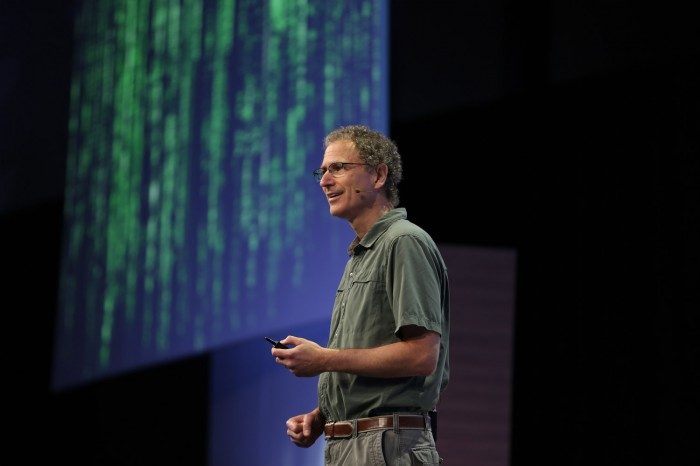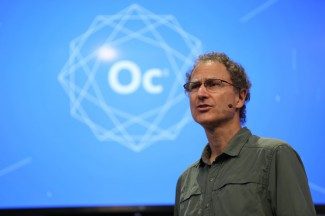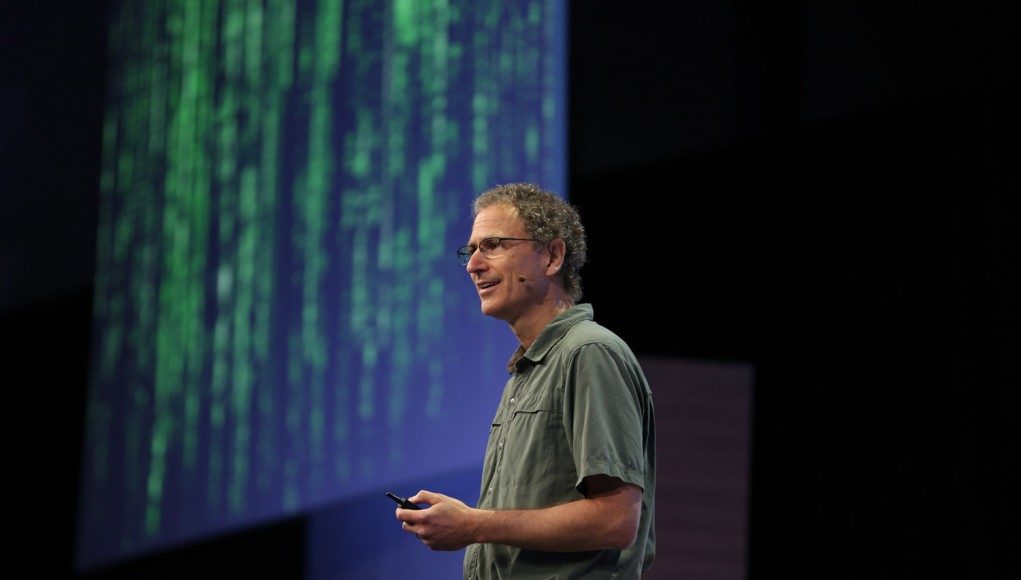
Buried toward the end of Michael Abrash’s must-watch keynote at Oculus Connect was the announcement of a new research division within Oculus which Abrash says is the “first complete, well funded VR research team in close to 20 years.” He says that their mission is to advance VR and that the research division will publish its findings and also work with university researchers.
Full Backing of Oculus and Facebook
There’s a good reason why Oculus opted to hire Michael Abrash as ‘Chief Scientist’. During his excellent talk at Oculus Connect last month, Abrash announced Oculus Research, a division within the company that’s dedicated to advancing VR. The research team seeks to actively defeat what Abrash calls “the myth of technological innovation,” the idea that just because a technology is possible, it will eventually exist without a concerted effort to develop it.

“Every aspect of VR will improve hugely over time. Of course, the VR platform isn’t going to advanced on its own,” Abrash told the audience at Oculus Connect. Someone has to make that happen. That someone is Oculus Research. We’re putting together a broad mix of researchers, engineers, and programmers to form the first complete, well-funded VR research team in close to 20 years. We have the full backing of Oculus and Facebook for doing the deep, long-term work needed to make VR as good as it can be.”
And it won’t be only to the benefit of Oculus. Abrash says that Oculus Research will work collaboratively and publish its findings publicly.
“Our mission is to keep advancing the VR platform so that you can develop new, great VR experiences on top of it. And we’re fully aware that VR is more than just Oculus. We’ll be publishing our findings and working with university researchers, so the whole VR community can grow and move forward,” said Abrash.
Now Hiring
Oculus is now hiring for their research division which is based in Seattle, Washington. “We’re looking for first-rate programmers, hardware engineers, and researchers of many sorts, including optics, displays, computer vision and tracking, user experience, audio, haptics, and perceptual psychology. And if you’re a top-notch programmer with strong math skills, we’d love to talk with you. Come join us as we build the future!” the company notes on the hiring page.
The work that’s already been done by Oculus has gone far to reignite the virtual reality industry, and they’ve been sharing their progress along the way. Their original innovation was bringing the cost of a good VR experience down to a consumer level, but the now company is working on the finer details of tracking, persistence, and presence—and it’s paying off in a big way.
See Also: Oculus Open-sources Rift DK1: Mechanical Designs, Firmware, and More All Freely Available
Jason Jerald, a consultant who’s worked with numerous VR entities over the years, says that Oculus’ latest ‘Crescent Bay’ prototype thoroughly impressed him. “[Crescent Bay] was the most well-calibrated VR system I have ever tried. I am extremely impressed with Oculus in general and am convinced they are doing everything right for HMD design,” he told me.
While there were fears that Oculus’ attitude toward openness would change for the worse after the company’s acquisition by Facebook back in March, it’s great to see that they’re still making it a point to share key findings with the industry at large.






